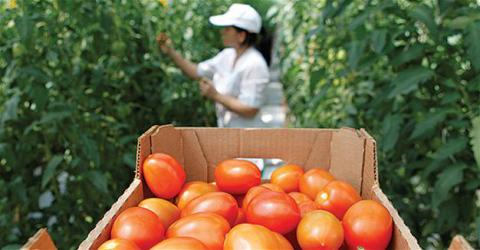Russian ban on Turkish tomatoes bears domestic fruit

A ban on Turkish tomato imports that was motivated by geopolitics has inspired Russia to become self-sufficient in tomato production, a windfall for companies who invested in the technology that would increase year-round production.
Russia has been ramping up production of meats, cheese and vegetables since it banned most Western food imports in 2014 as a retaliatory measure for sanctions meant to punish Russia's support of rebels in eastern Ukraine and annexation of Crimea.
After Turkey shot down a Russian jet near the Syrian border in November 2015, Moscow expanded the ban to include Turkish goods, including tomatoes, for which Russia was the biggest export market.
Ties between Ankara and Moscow have since largely normalized and all restrictions have been lifted but the ban on tomatoes remains in place and may not be lifted for another three to five years, officials have said.
That may be too late for Turkish exporters if Russian efforts to ramp up domestic production bear fruit.
Greenhouse projects being built with state support are key to Russia's plans to become self-sufficient for its 144 million population by 2020, industry players, analysts and officials say.
Although Russia only imports about 500,000 tons of the 3.4 million tons of tomatoes consumed annually, the country's notoriously harsh winters have limited its ability to ramp up to full capacity, IKAR agriculture consultancy said.
Currently only 620,000 tons of production comes from "protected ground", or greenhouses, IKAR said. The remainder comes from "open ground" productive only from June to September, and most of that comes from private plots maintained and used by individual families or sold at local farmers' markets.
Sergey...
- Log in to post comments










